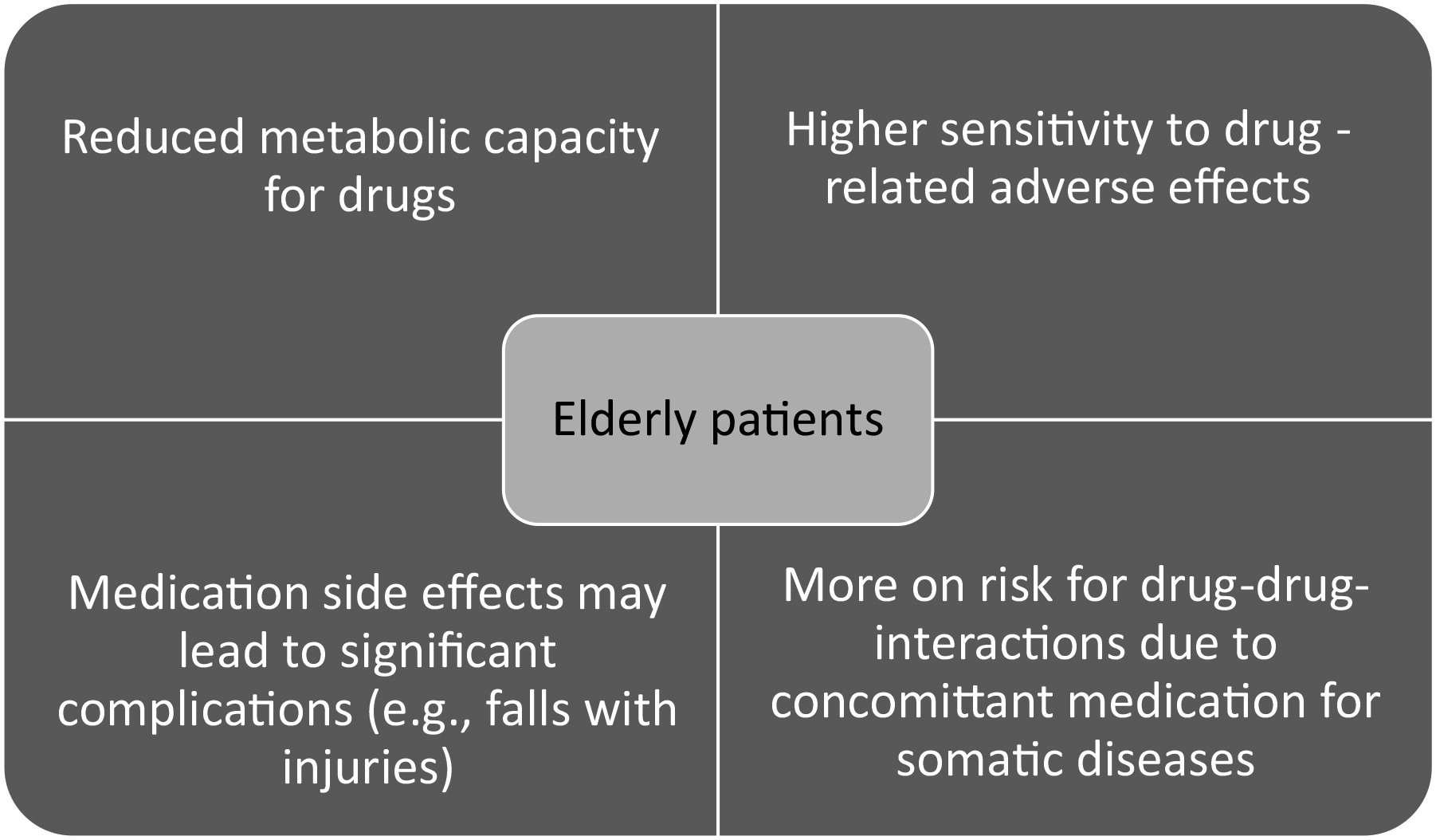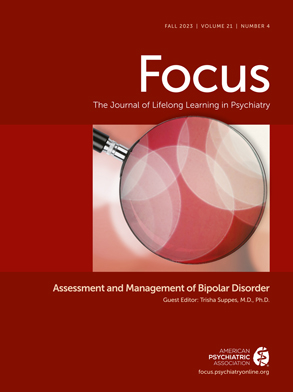Treatment of Bipolar Disorders in Older Adults: A Review
Abstract
Background:
Methods:
Summary of findings:
Conclusions:
Background
Methods
Summary of findings
Definition of Old Age Bipolar Disorder
| Early-onset bipolar disorders | “Old” bipolar patients with early onset of the disease |
|---|---|
| “Real” late-onset bipolar disorders | In some patients, bipolar disorder actually manifests itself for the first time after the age of 50 |
| Late-onset bipolar disorder with earlier pseudo-unipolar course | A manic, hypomanic or mixed episode develops for the first time after the age of 50, although depressive episodes had already occurred before the age of 50 |
| Secondary manias | As a result of a somatic disease or medication- or drug side effects lead to the development of a manic syndrome |
Epidemiology
Clinical Features and Diagnosis
| Characteristics | BD in older adults | BD in younger adults |
|---|---|---|
| Comorbidity with physical illnesses | Higher | Lower |
| Psychosocial events as a trigger | More | Less |
| Cognitive dysfunction | Higher | Lower |
| Symptoms of mania and depression | Similar | Similar |
| Prevalence of depressive episodes | Higher | Lower |
| Severity of depressive episodes | Lower | Higher |
| Antidepressant use | Higher | Lower |
| Secondary mania | Higher | Lower |
| Family history of mood disorder | Lower | Higher |
| Comorbidity with mental illnesses (all) | Lower | Higher |
| Substance use disorders | Lower | Higher |
| Personality disorders | Lower | Higher |
| Attention deficit hyperactivity disorders | Lower | Higher |
Pharmacological Treatment

Lithium.
Valproic acid and derivatives.
Carbamazepine.
Lamotrigine.
Antipsychotics.
Antidepressants.
Non-Pharmacological Treatments
| Treatment | Mania | Bipolar depression | Maintenance | Notes |
|---|---|---|---|---|
| Lithium | + | 0 | + | For mania: EP-ABD, [70]; For maintenance: LGE |
| Valproate | + | 0 | 0 | For mania: LGE |
| Lamotrigine | – | + | + | For depression and maintenance: LGE |
| Antipsychotics | + | 0 | 0 | For mania: LGE for quetiapine, asenapine, risperidone, aripiprazole, clozapine |
| Antidepressants | – | 0 | 0 | For depression and maintenance: EP-ABD |
| ECT | + | + | 0 | For depression and maintenance: EP-ABD |
| Psychotherapy and psychosocial treatment | – | + | + | All EP-ABD or trials in geriatric unipolar depressed patients EP-ABD or LGE |
Conclusion
Acknowledgments
Footnotes
References
Information & Authors
Information
Published In
History
Keywords
Authors
Competing Interests
Competing Interests
Funding Information
Metrics & Citations
Metrics
Citations
Export Citations
If you have the appropriate software installed, you can download article citation data to the citation manager of your choice. Simply select your manager software from the list below and click Download.
For more information or tips please see 'Downloading to a citation manager' in the Help menu.
View Options
View options
PDF/EPUB
View PDF/EPUBLogin options
Already a subscriber? Access your subscription through your login credentials or your institution for full access to this article.
Personal login Institutional Login Open Athens loginNot a subscriber?
PsychiatryOnline subscription options offer access to the DSM-5-TR® library, books, journals, CME, and patient resources. This all-in-one virtual library provides psychiatrists and mental health professionals with key resources for diagnosis, treatment, research, and professional development.
Need more help? PsychiatryOnline Customer Service may be reached by emailing [email protected] or by calling 800-368-5777 (in the U.S.) or 703-907-7322 (outside the U.S.).

